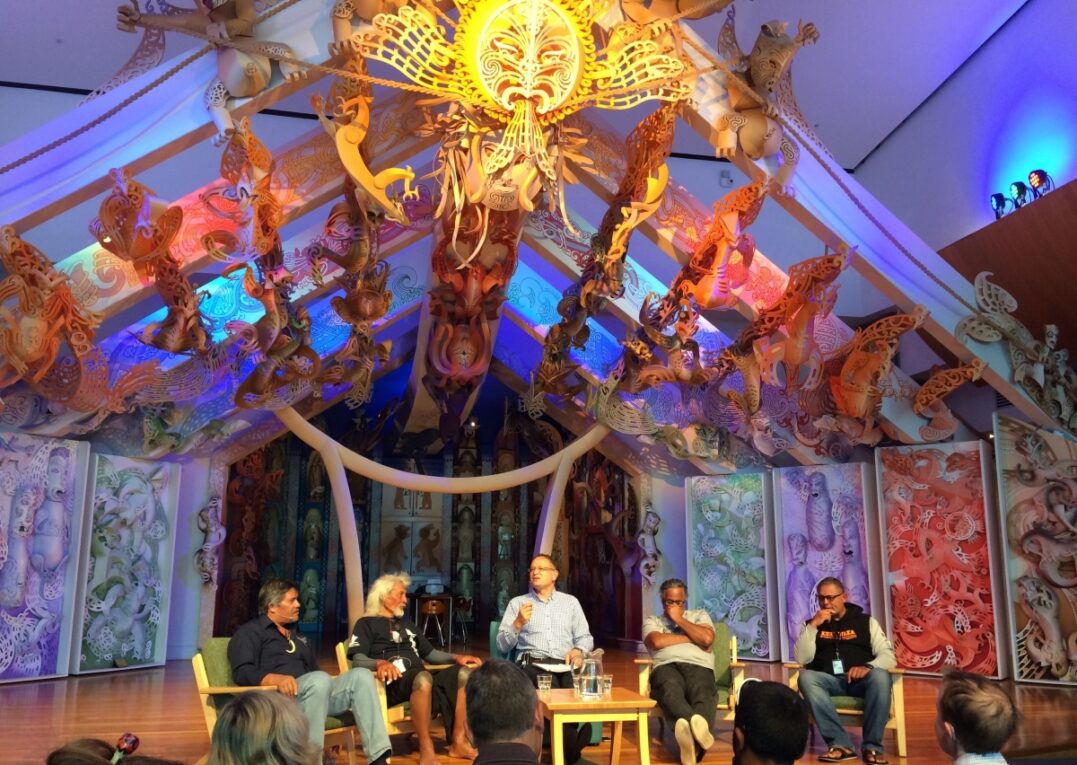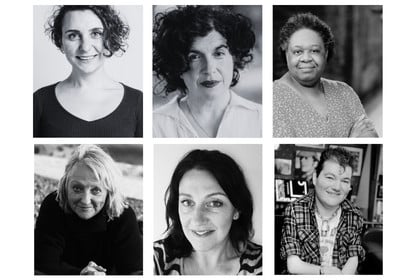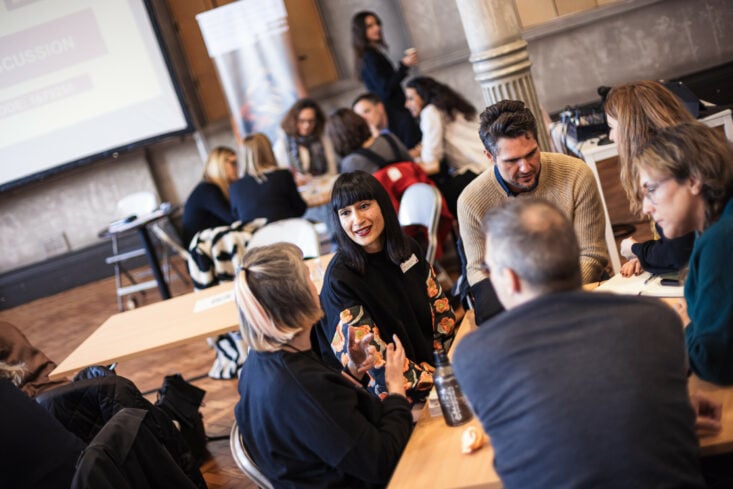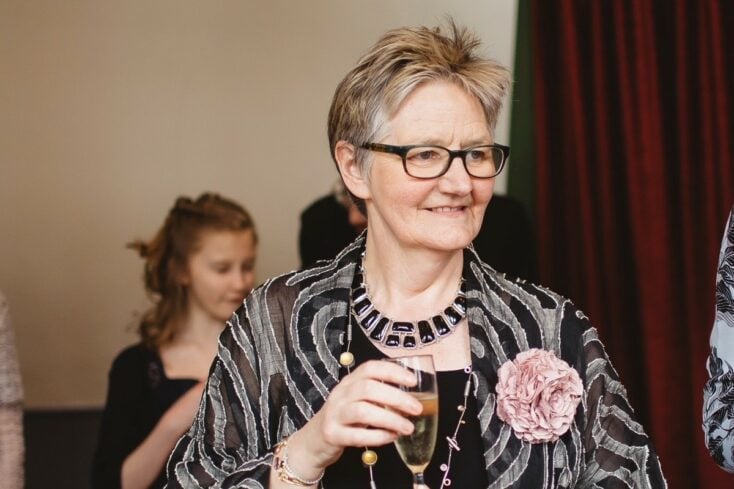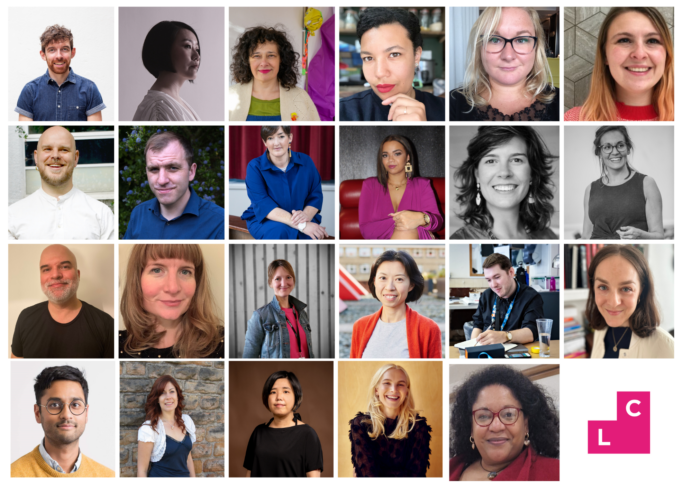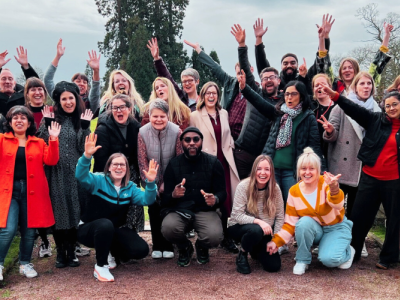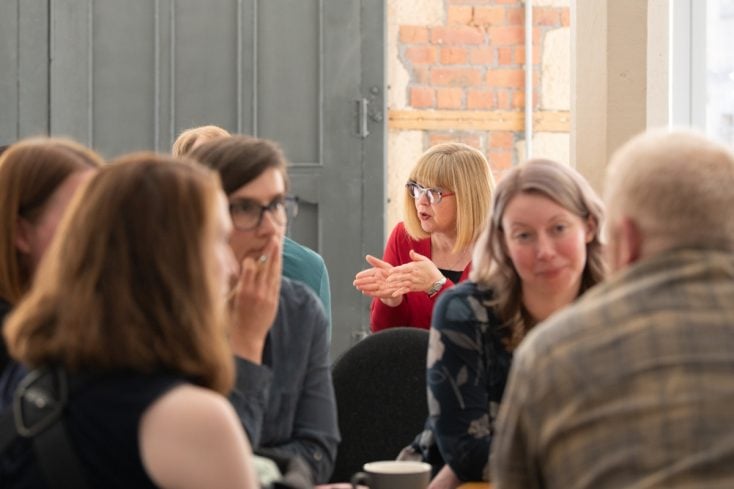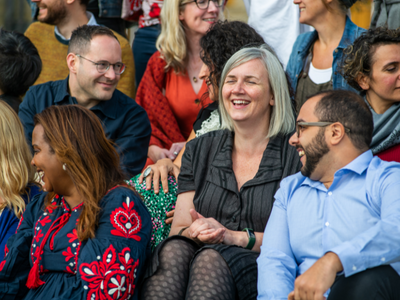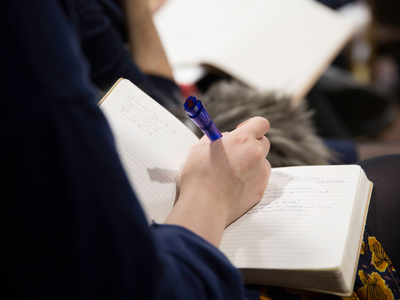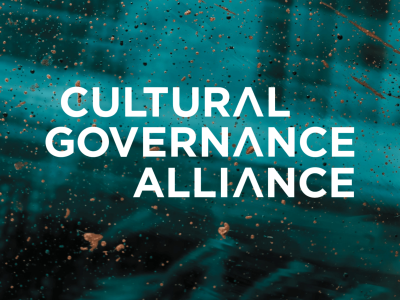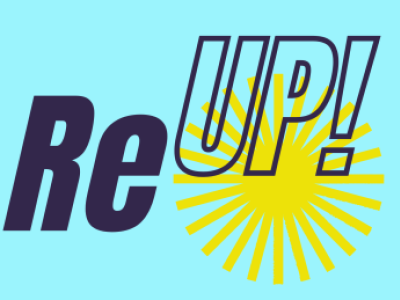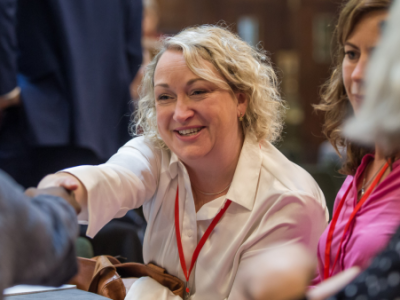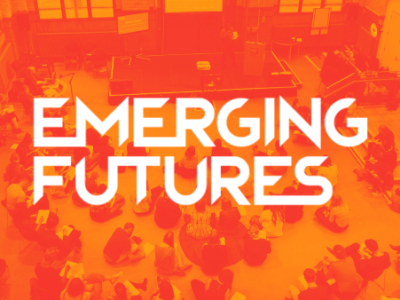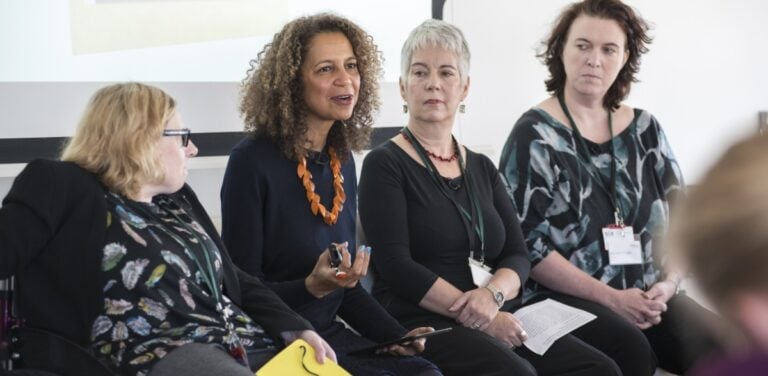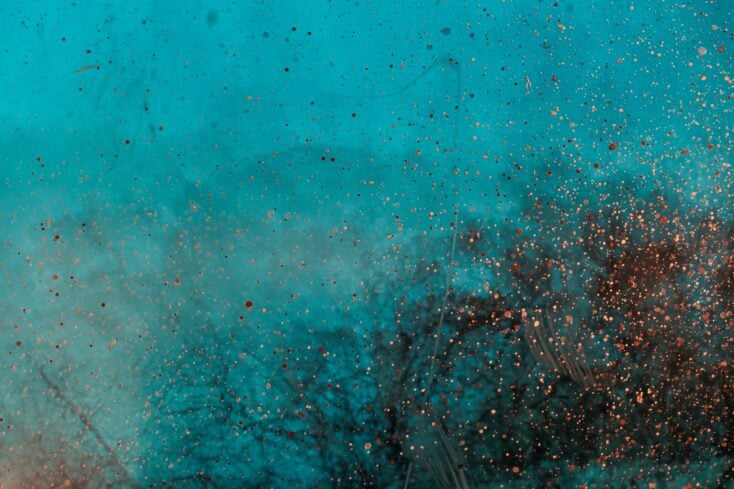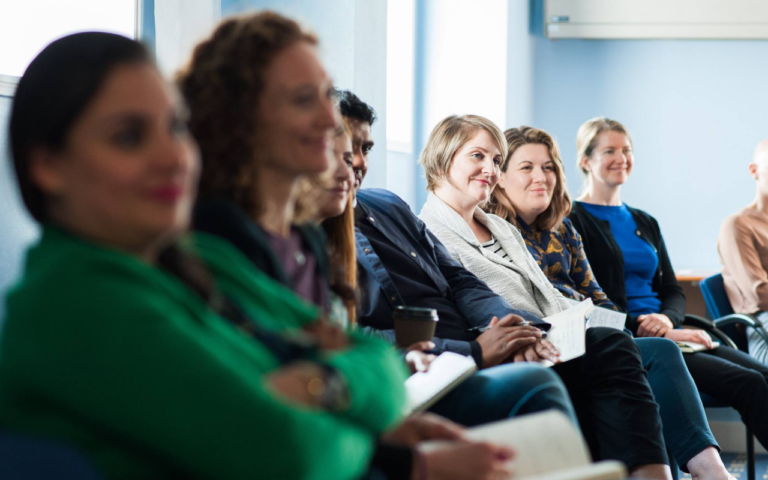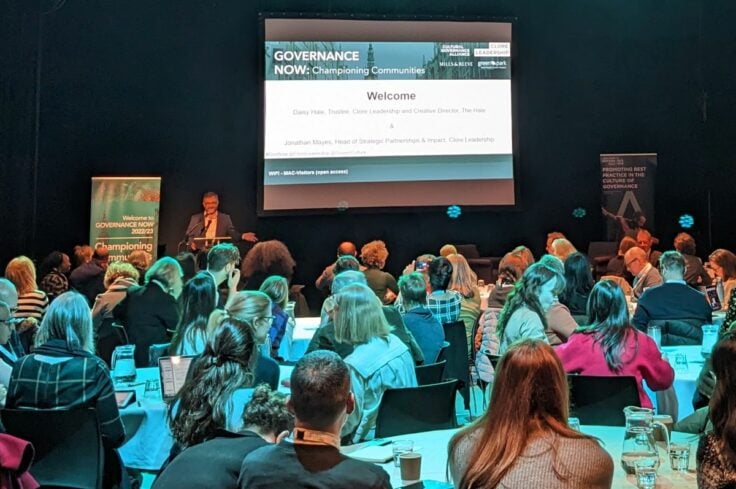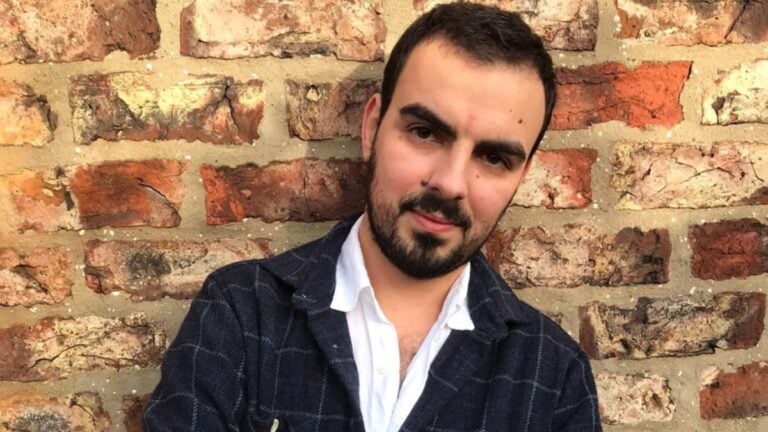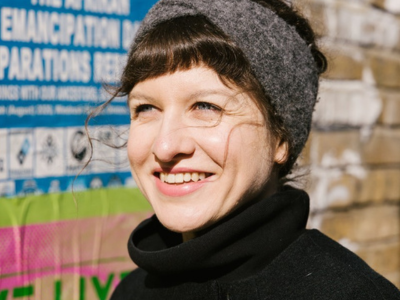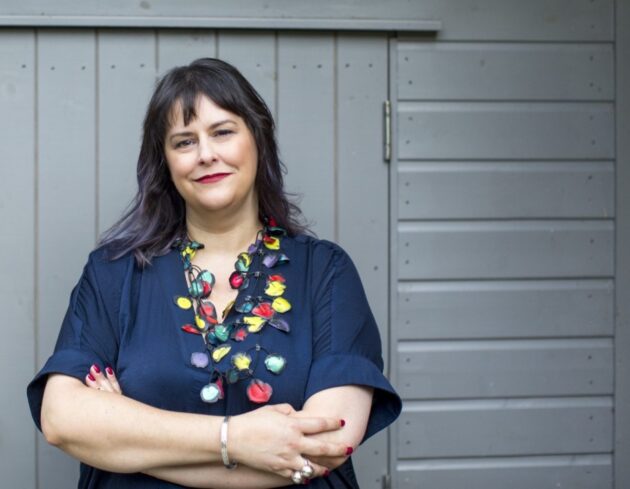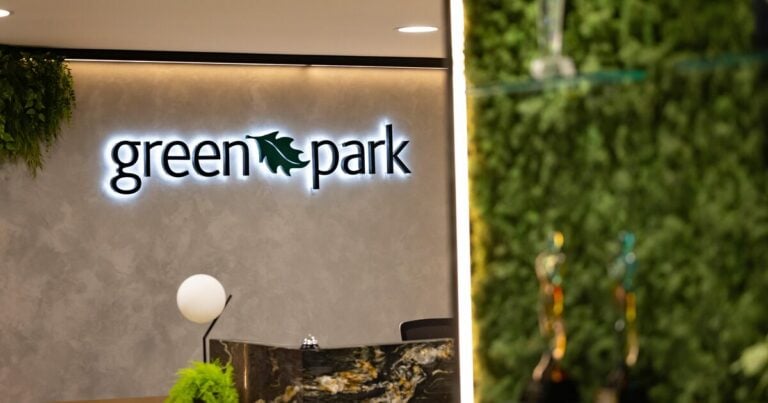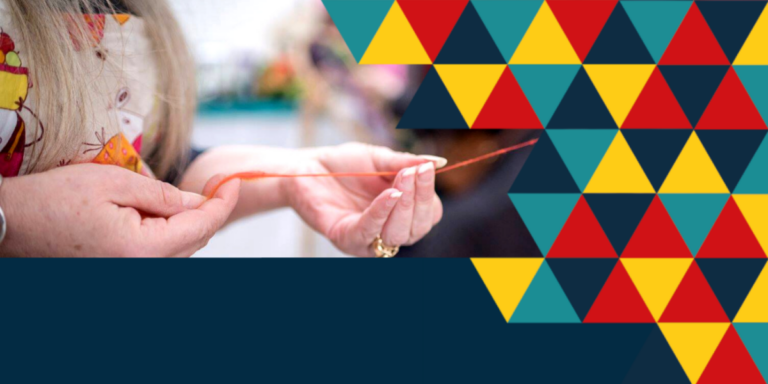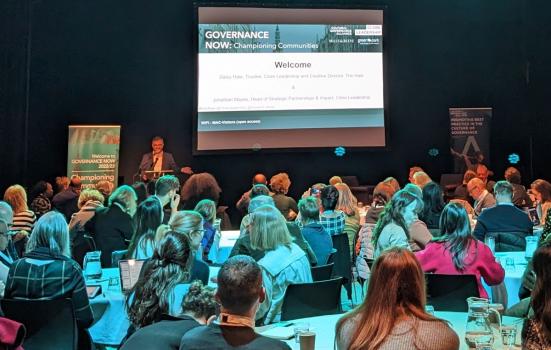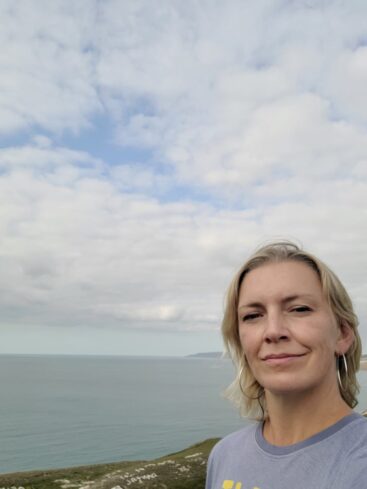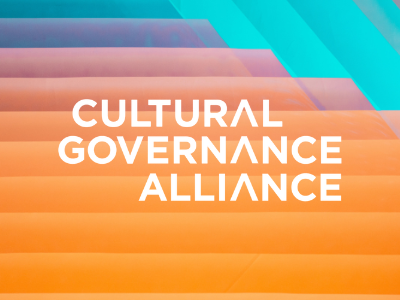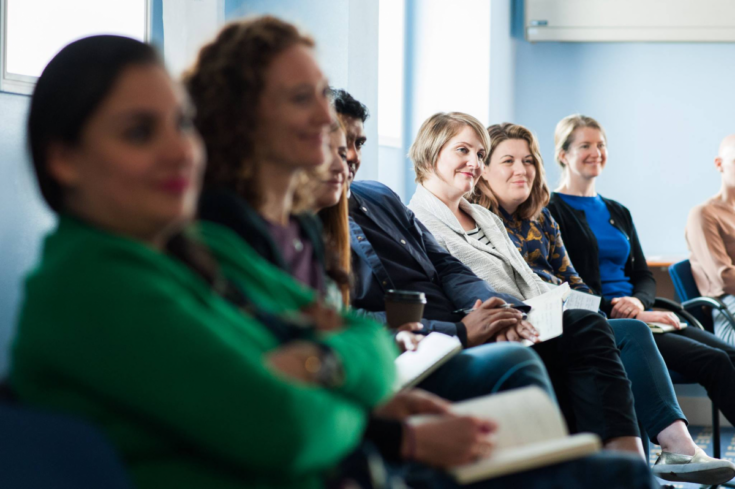Kindness in Leadership: Making an Organisational Commitment
Clore 14 Fellow Kathleen Turner explores how the value of kindness can manifest not only in the outcomes of our work in arts and culture, but also in the organisational culture of the workplace itself.
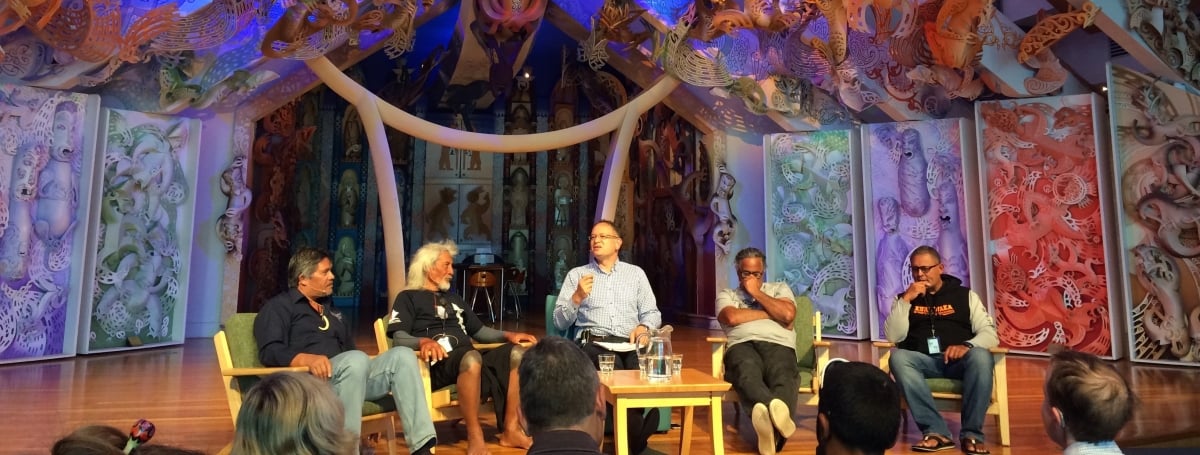
Dr Kathleen Turner is a singer, songwriter and community musician and the recipient of the Jerome Hynes Fellowship 2017/18 supported by the Arts Council of Ireland. She completed her PhD in Arts Practice at the Irish World Academy of Music and Dance, University of Limerick in 2017. She also holds two Masters Degrees, MA Community Music and MA Ritual Chant and Song, and a BA (Hons) in English and Politics from the University of Stirling.
From 2008 – 2014, Kathleen was Community Engagement Manager for the Irish Chamber Orchestra, designing and implementing a number of projects that bring live music into the community. This included ‘Sing Out with Strings,’ a community music programme with children and young people living in Limerick City, Ireland. Sing Out provides 300 children annually with free access to singing, songwriting and instrumental tuition and is now in its 11th school year.
Kathleen is a member of faculty at the Irish World Academy of Music and Dance, University of Limerick, where she is Course Director of MA Community Music and teaches on the BA Performing Arts.
A Tuesday afternoon in New Zealand. I am sitting in a marae (Māori meeting house) on the top floor of Te Papa museum in Wellington. The sunlight is flooding in from the harbour behind us, illuminating the colours of the intricate woodwork on the marae’s stage. Five men are speaking to the audience about Pacific voyaging skills, in a special seminar for the New Zealand festival honouring one of the founding Māori ancestors, Kupe the Navigator.
The panel members are all cultural leaders, ocean voyagers and educators, who lead crews on traditional ocean-voyaging waka (double-hulled Pasifika canoes). A member of the audience asks about their values as leaders: “What do you most value in your crew? What kind of person do you want on the waka?” Hoturoa Barclay-Kerr, a renowned leader in the protection and development of waka knowledge, answered:
“People always think I only want the strongest person – the athlete. But that’s not what I want for the men and women on our waka. If you’re not strong, I can help you get stronger. If you’re not a good swimmer, I can teach you to swim. But if you’re not a good person…. there’s not much I can do about that. I need kind people on my waka. I need people who will look after each other. We’re family.”
One by one, the other men on stage support Hoturoa’s statement. Each one of them, without exception, claimed kindness as key to their leadership, and to the survival of the crew on their boats.
Why ‘kindness’?
This experience came at a moment early in my Clore Fellowship, as part of a cultural study visit to New Zealand. I was there to learn more about the Māori approach to community music, but what I actually noted was the centrality of kindness in the structure of Māori communities and organisations. In this context, the job of a leader is to help develop the personal sovereignty of those around them. As Hoturoa and his co-authors explain in their book, Wayfinding Leadership, a true leader “weaves a group together,” uplifting and strengthening the crew by sharing their knowledge, skills and support. The success of this is dependent on kindness and generosity (manaakitanga); values that are embedded in the culture of healthy organisations through their ethos and their structure.
On returning home, inspired by these Māori principles, I began to revisit my professional relationship with the term ‘kindness’. I realised that, while I frequently encounter experiences of kindness in the organisations I work with and in my role as a community musician, I do not typically hear the word in the context of everyday, practical issues such as strategy, project management or administration. In Western working cultures, kindness can often be associated with naivety, ‘softness’, or a tendency to be taken advantage of. I wondered what impact kindness might have if we took inspiration from Māori lessons in cultural leadership, viewing it as a valuable foundation for robust, thoughtful and responsible leadership. How far might a framework of kindness impact on our work if the value were to be embodied on an everyday basis?
This thought process was spurred on by an encounter with social entrepreneurs and creative thinkers at Impact Summit – a conference that encouraged individuals to harness their creative abilities to tackle socio-economic inequality, “for a purpose no less than the transformation of society”. One of the keynote speakers was Mel Young, CEO of the Homeless World Cup, describing the impact of their work. He described their mission in robust terms, arguing the importance of building effective partnerships and establishing trust, a willingness to share learning, and a commitment to mapping substantial impact. Young links the success of their enterprise to compassion, love and an inspiration for social change, stating his bold ambition for the organisation: “We want to shift the paradigm of homelessness through sport. We want to change the whole dynamic of our system through compassion.”
How can kindness change the dynamic?
Julia Unwin, former CEO of the Joseph Rowntree Foundation and Carnegie Fellow, argues that kindness is fundamental for the future of the public sector, particularly with regard to regaining the public’s trust. Speaking at The Gathering in February 2018, Unwin argued that kindness is at the root of tackling some of our greatest societal challenges, including violence, childhood obesity and climate change. She proposes that applying a principle of kindness to our work is not a ‘soft’ or naïve action but rather a radical organisational shift.
One does not have to look far for organisations in the arts and culture sector that place kindness at the forefront of their identity. The arts charity People United, founded by Clore Fellow Tom Andrews, was established with a vision for “growing kindness”. This vision is played out in a strategic way through the design, delivery and documentation of each programme it provides. People United describes the value of kindness as present in every aspect of its structure: “by commissioning artists, working with neighbourhoods, individuals, schools and arts organisations on creative projects (which are adapted or duplicated), supporting other people’s good ideas, generating new research, creating resources, offering advice and bespoke consultancy, and curating public events.” One could argue that this is simply the remit of all good community arts organisations – isn’t kindness implicit in all well-planned participatory activities? However, there is power in the naming. By explicitly articulating kindness as core to its identity, People United offers a unique benchmark against which to measure its success. Its accomplishment is not only measured in participant numbers or funding levels, but in how people are valued, supported and celebrated.
Impact Arts, a Scottish charity that provides community arts experiences for people of all ages, also frequently refers to the importance of kindness and compassion in its work with robust language. It describes its work as “innovation, enterprise and creativity alongside outstanding delivery, sound management and a strong ethos of partnership to tackle society’s big issues.” Kindness is actively present, both in the projects it delivers and in the workplace setting it provides. Impact Arts is a Living Wage employer, and places a significant emphasis on mentoring young artists for future employability. Kindness is not ‘soft’ or ‘naïve’ – it is a foundation for these healthy, ambitious and creative organisations. With this in mind, I have identified specific elements of a kindness framework that might offer a helpful benchmark to other organisations.
People-centered kindness
Making a commitment to kindness within an organisation ensures that it is people-centred. Attention and resources are given to ensuring that each member of the team is supported, challenged and encouraged in order to reach their full potential. In a practical sense, this manifests in helping team members to feel valued in their work, providing opportunities for training and professional development, mentorship, and ensuring the availability of senior leaders to give space for reflection and discussion. A commitment to kindness also means ensuring that a work/life balance is feasible, and employees at every level of the organisation can both work well and be well.
Welcoming kindness
When organisations bind their identity to kindness, they commit to becoming more welcoming. As a consequence, conversations regarding issues of inclusion, diversity and equality are inherent in the process. Who is truly welcome within the organisation? Is this expressed by the accessibility of the space, the equality of opportunities, the diversity of the voices consulted, the support structures provided? Equality and diversity become more than policies to be adhered to – rather, they are tangible expressions of a company’s humanity.
Environmental kindness
When organisational kindness is explored in its fullest sense, it must include attention to our environment with regard to both aesthetics and sustainability. At an aesthetic level, kindness encourages us to examine our working environment and consider who has access to clean, comfortable, bright spaces that inspire and are enjoyable to work in. We all know work spaces with dark offices, cold corridors, no access to green space or fresh air. Is our working environment somewhere that team members look forward to being in, or a place we long to escape?
With regard to sustainability, the principle of kindness reminds organisations to consider their wider impact on the world. Do workplace practices include recycling, access to smoke-free spaces and places to park bicycles? These simple practical commitments are worth fulfilling, not only because they ensure a kind working environment for team members, but also because they demonstrate a kindness and respect for the environment around us. This is both personal and collective sustainability in action.
Administrative kindness
Administration is an organisation’s first, and perhaps most important, act of kindness. It is an expression of hospitality – how we receive and treat one another – whether as fellow employees, or as members of the public. Efficient administration matters, not only because it has an impact on the functionality of a healthy organisation, but also, fundamentally, because it directly has an impact on people’s wellbeing. When firmly applied, a cultural commitment to kindness ensures invoices are paid on time, events begin and end on time, documents are easily understood, and queries receive a response. Crucially, these can only be provided when employees themselves have time, space and support to work to their full potential. If there is a break in the chain of kindness at any level of an organisation, the repercussions can be felt much further along.
Kind Leaders
Gay Haskins (co-author of Kindness in Leadership, University of Oxford) argues that leaders are responsible for sowing the seeds of kindness within their organisations – we set the tone. In our leadership practices, organisational structures and day-to-day actions, we have the opportunity to demonstrate that kindness is “not just a virtue but also a value”. The consequences of this decision can cause a powerful ripple effect: “if kindness in leadership prevails beyond the corporate world in public policy and government, it extends corporate into communal, national and ultimately global value.”
If there is one central lesson I will take from my time as a Clore Fellow, it is the importance of values. They provide us with an anchor, so as we encounter challenges, and if our circumstances change, we remain grounded in our identity. With that in mind, kindness is a powerful anchor to hold us in place. It reminds us to value the people around us and do our best to help everyone to reach their fullest potential. It challenges us to check our doorway, to make sure everyone has access and feels welcome. It holds up a mirror to our actions, to ask if we are providing a clean, safe, and sustainable environment. It spurs us on to be efficient and communicative, because if we work well together, everyone thrives.
Themes Governance
